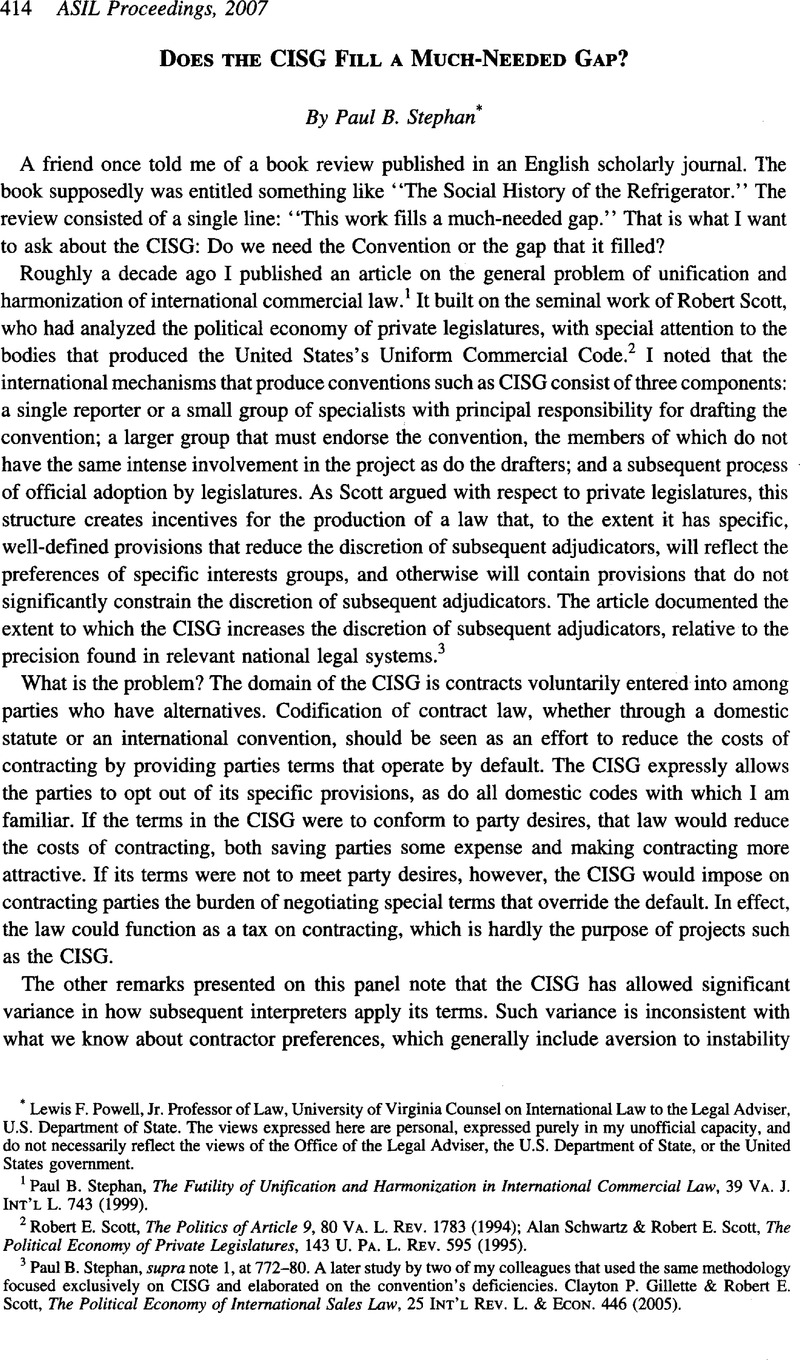No CrossRef data available.
Published online by Cambridge University Press: 28 February 2017

1 Stephan, Paul B. The Futility of Unification and Harmonization in International Commercial Law, 39 Va. J. Int’l L. 743 (1999)Google Scholar.
2 Scott, Robert E. The Politics of Article 9, 80 Va. L. Rev. 1783 (1994)CrossRefGoogle Scholar; Schwartz, Alan & Scott, Robert E. The Political Economy of Private Legislatures, 143 U. Pa. L. Rev. 595 (1995)CrossRefGoogle Scholar.
3 Paul B. Stephan supra note 1, at 772-80. A later study by two of my colleagues that used the same methodology focused exclusively on CISG and elaborated on the convention’s deficiencies. Gillette, Clayton P. & Scott, Robert E. The Political Economy of International Sales Law, 25 Int’L Rev. L. & Econ. 446 (2005)CrossRefGoogle Scholar.
4 See Cuniberti, Gilles, Is the CISG Benefiting Anybody? 39 Vand. J. Transnat’l L. 1511 (2006)Google Scholar; Clayton P. Gillette & Robert E. Scott supra note 3, at 477-78.
5 The Hague Conference on Private International Law has produced the Convention on the Law Applicable to Contracts for the International Sale of Goods, Dec. 22, 1986, and the Convention on Choice of Court Agreements, Jun. 30, 2005. None is in force.